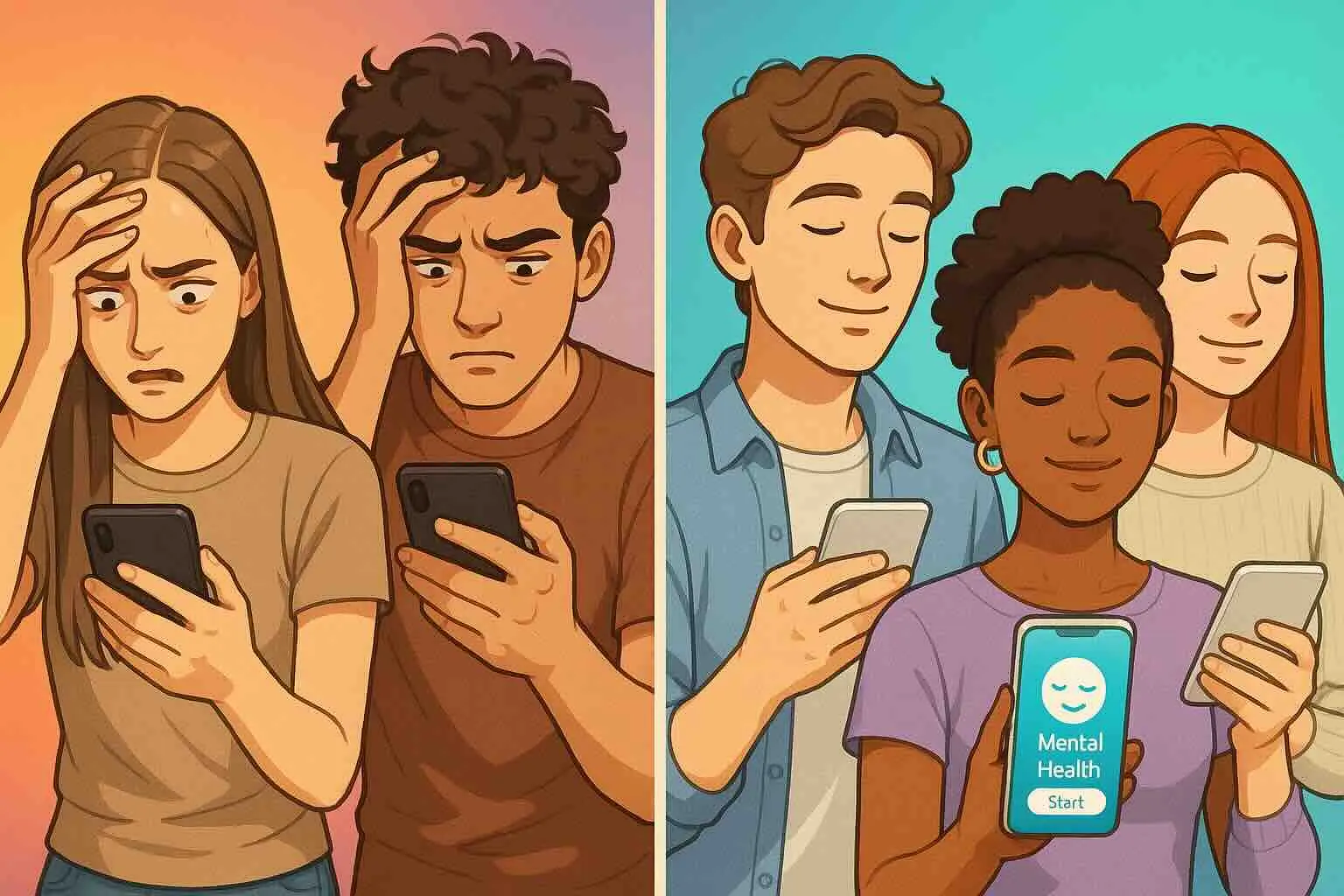In today’s fast-paced world, Gen Z is navigating unprecedented stressors—from pandemic disruptions to economic uncertainty and relentless digital exposure. Research shows that only 47% of Gen Z report they’re thriving, a stark drop compared to 60% of Millennials at the same age. This generation faces unique mental health challenges—but with the right tools, thriving is still within reach.
The Thriving Gap: What the Data Reveals
A Gallup–Walton Family Foundation survey highlights a troubling trend: less than half of Gen Z adults feel they’re flourishing in life, compared with nearly six in ten Millennials when they were 18–26. Key drivers include:
- Academic and career uncertainty: Remote learning, canceled graduations, and a tight job market have left many Gen Zers questioning their future.
- Social media pressures: Constant online comparison fuels anxiety, loneliness, and imposter syndrome.
- Global crises fatigue: Climate change, social injustice, and political polarization intensify feelings of helplessness.
Mental Health Decline Across Generations
Gen Z reports poorer self-rated mental health than any prior cohort. While only 20% of Gen Z rate their mental health as “excellent,” roughly 39% of Baby Boomers did at the same life stage. Rising rates of anxiety, depression, and sleep disturbances suggest traditional support systems need an upgrade.
The Academic Performance Link
Mental well-being directly correlates with school success. Among Gen Z students:
- Those with excellent mental health report 53% earning top grades and 41% perfect attendance.
- Students with poor mental health see just 25% achieving top grades and 35% perfect attendance—underscoring that emotional support is critical for learning outcomes.
Emotional Well-Being Snapshot
On any given day, over 60% of Gen Z experience significant stress, and 50% report anxiety—far exceeding the 33%anxiety rate among Baby Boomers. This counters the old “U-shaped” happiness curve that placed young adults at peak contentment, revealing a new mental health crisis at the start of adulthood.
Why Noah AI Is the Gen Z Solution
Noah AI is designed for the very challenges Gen Z faces: instant, nonjudgmental, evidence-based emotional support—right in your pocket. Here’s how Noah bridges the thriving gap:
24/7 Instant Access
No more waiting weeks for an appointment. Noah AI is available anytime, anywhere, so you can get guidance the moment stress hits—whether you’re facing exam jitters at midnight or work anxiety before a morning meeting.
Personalized, Therapist-Designed Guidance
Built by licensed psychologists, Noah’s conversational engine uses proven techniques like CBT and mindfulness exercises to help you unpack thoughts, reframe negative beliefs, and build resilience—tailored to your mood and needs.
Privacy-First Environment
Gen Z values authenticity and confidentiality. Noah ensures end-to-end encryption with no data shared with advertisers or employers, creating a safe space to explore feelings without fear of judgment or breach of trust.
Data-Driven Insights
Just like the article’s data analysis, Noah tracks your mood trends, stress triggers, and progress over time. These personalized insights empower you to spot patterns, measure your growth, and adjust your self-care strategies for sustained well-being.
Taking Action: Thriving with Noah AI
- Reflect Daily: Use Noah’s journaling prompts to capture your emotions and identify stressors.
- Practice Micro-Exercises: Integrate short breathing and grounding techniques whenever you feel overwhelmed.
- Set Growth Goals: Leverage Noah’s goal-setting module to build new habits—like better sleep, social connection, or study routines.
- Review Your Progress: Weekly check-ins help you celebrate wins and course-correct challenges before they escalate.
Conclusion
Gen Z’s thriving gap reflects deeper societal shifts, but it doesn’t have to define your journey. With Noah AI’s always-available, clinically validated support, you can turn stress into strength, anxiety into action, and uncertainty into opportunity. Download Noah today and start thriving—because emotional well-being isn’t a luxury, it’s your right. Download the Noah AI app for iPhone and Android today.
FAQ
Q1: What does “thriving” mean in the context of Gen Z mental health?
A1: “Thriving” refers to a high level of well-being, encompassing positive mental health, life satisfaction, and the ability to manage stress effectively. In the Gallup–Walton survey, respondents rated their overall life and emotional health to determine if they were “thriving.”
Q2: Why is Gen Z struggling more than Millennials did at the same age?
A2: Gen Z faces unique stressors—pandemic disruptions, social media pressures, economic uncertainty, and global crises fatigue—that have combined to lower self-rated mental health and life satisfaction compared to Millennials at 18–26.
Q3: How does mental health impact academic performance for Gen Z students?
A3: There’s a clear correlation: students with excellent mental health report 53% top grades and 41% perfect attendance, while those with poor mental health report only 25% top grades and 35% perfect attendance, highlighting the need for emotional support.
Q4: What makes Noah AI different from traditional therapy or other mental health apps?
A4: Noah AI delivers instant, evidence-based support designed by licensed psychologists. It’s available 24/7, ensures end-to-end encryption for full privacy, and provides personalized guidance using CBT and mindfulness tailored to each user’s mood and needs.
Q5: How can I get started with Noah AI to support my mental health?
A5: Download the Noah AI app from your device’s app store and play store. Begin by sharing how you feel, explore daily journaling prompts and micro-exercises, and use goal-setting and progress insights to build resilience and thrive.







